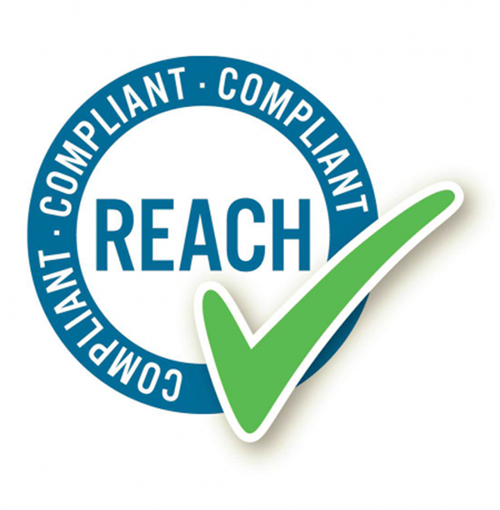What is REACH?
REACH (Registration, Evaluation, Authorization, and Restriction of Chemicals) is a comprehensive regulation of the European Union for chemicals. Its primary purpose is to ensure human health and environmental protection from potential hazards of chemical substances while promoting their sustainable use. Obtaining REACH certification provides multiple benefits for businesses, particularly in international trade and brand image.
What are the benefits of REACH?
- Access to the EU Market
Mandatory Requirement: REACH is a necessary condition for selling chemicals, materials, and related products (such as manufacturing components) within the EU. Obtaining REACH certification allows your products to legally enter and circulate in the EU market. Without certification, products may face market restrictions, fines, or even bans. - Enhanced International Competitiveness
REACH certification is an internationally recognized safety standard. Having this certification demonstrates to customers that your products comply with Europe's stringent environmental and safety regulations. This helps attract more international customers, especially European businesses or markets that prioritize environmentally friendly products. - Reduced Legal and Trade Risks
Products that comply with REACH regulations can avoid legal disputes and fines, while also reducing the risk of recalls or rejections due to non-compliance. Many EU importers increasingly require their suppliers to provide REACH certification to ensure regulatory compliance within the supply chain. - Alignment with Sustainable Development Goals
REACH regulations require companies to minimize the use of hazardous chemicals, contributing to a stronger corporate image in sustainability and environmental protection. As ESG (Environmental, Social, and Governance) standards become a key consideration for businesses, REACH certification serves as a valuable asset. - Improved Product Safety and Quality
During the REACH certification process, companies must inspect raw materials, formulations, and chemical compositions in the manufacturing process, leading to improved product safety and quality. For consumers, this provides a strong assurance of trust and reliability. - Fewer Supply Chain Issues
REACH regulations impact not only final product manufacturers but also the entire supply chain. Using REACH-certified products and raw materials helps prevent potential issues caused by non-compliant suppliers or intermediaries.

How does this certification benefit bicycle brake pads?
- Compliance with EU Market Requirements
REACH is a mandatory requirement for entering the EU market. If your bicycle brake pads are intended for sale in the EU, obtaining REACH certification ensures regulatory compliance, preventing issues such as import rejection, product removal, or fines due to non-compliance. - Increased Market Competitiveness
Appealing to Environmentally Conscious Consumers: REACH certification demonstrates high standards in environmental safety, providing a competitive advantage, especially in the EU and other sustainability-focused markets. Preferred by Business Customers: If bicycle manufacturers require a REACH-compliant supply chain, your brake pads will have a higher chance of being selected as a qualified supplier. - Enhanced Product Safety and Quality
REACH aims to regulate hazardous chemical substances. Compliance offers the following benefits: Reduction of Toxic Substances: Minimizing lead, cadmium, PAHs, and other harmful materials in brake pads reduces potential risks to users and the environment. Improved Brand Image: In international markets, REACH compliance is often associated with high-quality products. - Reduced Legal and Financial Risks
Avoiding Recalls or Sales Bans: Non-compliant products in the EU may face severe penalties, including fines and recalls. REACH certification helps mitigate these risks. Long-Term Cost Savings: Ensuring compliance from the design and material selection stages helps avoid future rework and regulatory adaptation costs. - Supporting Supply Chain Transparency
REACH requires traceability and proper management of chemical substances, encouraging more transparent and reliable collaborations with suppliers. This helps build a stable supply chain and ensures long-term material consistency. - Alignment with ESG and Sustainability Goals
REACH certification is an integral part of a company’s Environmental, Social, and Governance (ESG) strategy. As global markets place increasing emphasis on sustainability, compliant brake pads help companies meet higher environmental and social responsibility standards. It can also serve as a marketing advantage for promoting green products and strengthening brand reputation. - Facilitating International Trade Expansion
Beyond the EU, other regions (such as the UK, South Korea, and China) are adopting chemical regulations based on REACH standards. Brake pads that meet REACH requirements are more likely to comply with multiple international markets, paving the way for global expansion. - Practical Applications
Reducing Lead Content: If friction materials in brake pads contain lead, they may be classified as restricted substances under REACH. Switching to eco-friendly materials ensures compliance and appeals to health- and environmentally-conscious consumers. Replacing Hazardous Adhesives: Using low-PAH or SVHC-free adhesives enhances product safety and can serve as a key selling point.

Why choose ADUI products?
The bicycle brake pads we develop can withstand rigorous testing, so there is no need to worry about certification issues. ADUI is committed to environmental protection and fully dedicated to developing non-toxic products.
Reminder: This article is for reference only
ADUI is a specialized brake pads manufacturer. We offer brake pads in a variety of materials and can adjust performance and lifespan according to customer needs, providing products that best meet client requirements.





